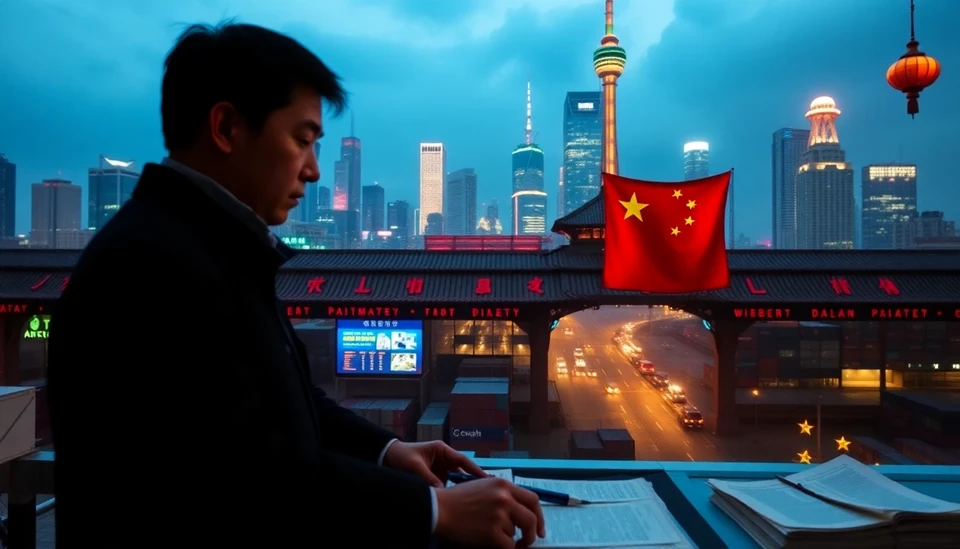
In a significant development marking the ongoing trade tensions, traders in China are amplifying their bets on monetary easing as the financial markets grapple with heightened volatility resulting from recent tariff impositions. This surge in expectations for a softer monetary policy stems from concerns that escalating trade disputes may lead to a more pronounced slowdown in the Chinese economy.
Recent tariffs imposed primarily by the United States on a variety of Chinese goods have not only intensified trade friction but have also prompted fears among investors about the potential impact on economic growth. The uncertainty created by these tariffs has fueled speculation that the People’s Bank of China (PBOC) may need to adopt more aggressive measures to stimulate the economy.
Market analysts are observing an uptick in pricing for interest rate swaps, indicating that traders are increasingly convinced that the PBOC will cut interest rates in the near future. As tensions escalate, many are aligning their strategies based on a forecast of monetary loosening that could alleviate some of the economic strains exacerbated by trade tariffs.
In response to these market dynamics, the Chinese yuan has experienced fluctuations, further influenced by traders positioning themselves ahead of possible policy changes. The central bank's recent comments have left room for interpretation, suggesting that while it may not immediately implement drastic cuts, the leeway for easing remains significant.
With economic indicators showing signs of distress, including slowing exports and key manufacturing metrics faltering, investors are keenly awaiting the next moves from policymakers. The anticipation surrounding potential rate cuts represents a critical juncture for not only China’s economy but also for global markets, which are closely monitoring how these monetary policies may play out amid existing tariffs.
As the situation develops, analysts will continue to scrutinize how the interplay between trade pressures and monetary policy evolves, remaining alert to any signals from the PBOC that could influence their projections. The overall sentiment suggests a growing consensus that more stimulus may soon be necessary to counterbalance the turbulence initiated by trade disputes.
The implications of these developments stretch well beyond China, impacting global market dynamics and investor confidence as nations navigate a complex landscape shaped by tariff-related challenges. It remains to be seen how far-reaching the effects of such monetary adjustments will be, underscoring the interconnectedness of global trade and financial strategies in today’s economy.
As traders remain on edge, the upcoming monetary policy decisions will be pivotal in shaping not only China's economic trajectory but also the broader implications for international trade relations.
#China #MonetaryEasing #TradeTariffs #EconomicGrowth #InterestRates #PeopleBankOfChina #GlobalMarkets #InvestorSentiment #TradeDisputes #FinancialNews
Author: Daniel Foster




